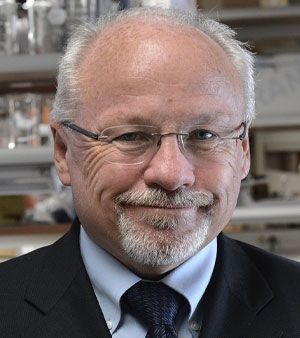Steven A. Soper Receives the Ralph N. Adams Award
Steven A. Soper

Steven A. Soper, a Foundation Distinguished Professor in chemistry and mechanical engineering at the University of Kansas, is the 2022 winner of the Ralph N. Adams Award in Bioanalytical Chemistry. The award recognizes contributions to the field of bioanalytical chemistry by introduction of a significant technique, theory, or instrument, or applications thereof, important to the life sciences, along with providing an exceptional environment to educate bioanalytical chemists. A presentation of the award will take place during a session of the 2022 Pittcon virtual program on Monday, April 25, at 1:00 pm EST.
In his award presentation Soper will give a talk titled “Developing Tools for Diagnostics: From Cancer to COVID-19.” Sopor and his team has been developing tools for the diagnosis of a variety of diseases. The commonality in these tools is that they consist of microfluidic devices made from plastics via injection molding. As a result, their tools can be mass produced at low-cost to facilitate the bench-to-bed side transition and point-of-care testing.
Soper is recognized for his work with single-molecule detection by laser induced fluorescence and his development of microchip technology for automated, highly miniaturized analysis systems. He is a worldwide recognized pioneer in the development of diagnostic platforms. He also holds an appointment at Ulsan National Institute of Science and Technology in Ulsan, South Korea, where he is a World Class University Professor. He has secured extramural funding totaling more than US $10 5 M, has published over 245 peer-reviewed manuscripts (h index = 67; 16,188 citations); 31 book chapters, and 71 peer-reviewed conference proceeding papers, and is the author of 12 patents.
Soper is also the founder of a startup company, BioFluidica, which markets devices for the isolation and enumeration of circulating tumor cells. He recently founded a second company, Sunflower Genomics, which is seeking to market a new DNA/RNA single-molecule sequencing platform. His list of awards includes an award for Chemical Instrumentation by the American Chemical Society, the Benedetti-Pichler Award for Microchemistry award, an R&D 100 Award, the Distinguished Masters Award at Louisiana State University (Baton Rouge, Louisiana) and being named an Outstanding Scientist/Engineer in the state of Louisiana in 2001. He has also been named a fellow of the AAAS, the Society for Applied Spectroscopy, and the Royal Society of Chemistry He has granted 48 PhDs and 7 MS degrees to students under his mentorship. He currently heads a group of 15 researchers.
To register for this session, go to:
https://us06web.zoom.us/webinar/register/WN_8mzAcJ0TQQ6Jmj3yvmOx_A
Best of the Week: Food Analysis, Chemical Migration in Plastic Bottles, STEM Researcher of the Year
December 20th 2024Top articles published this week include the launch of our “From Lab to Table” content series, a Q&A interview about using liquid chromatography–high-resolution mass spectrometry (LC–HRMS) to assess chemical hazards in plastic bottles, and a piece recognizing Brett Paull for being named Tasmanian STEM Researcher of the Year.
Using LC-MS/MS to Measure Testosterone in Dried Blood Spots
December 19th 2024Testosterone measurements are typically performed using serum or plasma, but this presents several logistical challenges, especially for sample collection, storage, and transport. In a recently published article, Yehudah Gruenstein of the University of Miami explored key insights gained from dried blood spot assay validation for testosterone measurement.
Determination of Pharmaceuticals by Capillary HPLC-MS/MS (Dec 2024)
December 19th 2024This application note demonstrates the use of a compact portable capillary liquid chromatograph, the Axcend Focus LC, coupled to an Agilent Ultivo triple quadrupole mass spectrometer for quantitative analysis of pharmaceutical drugs in model aqueous samples.